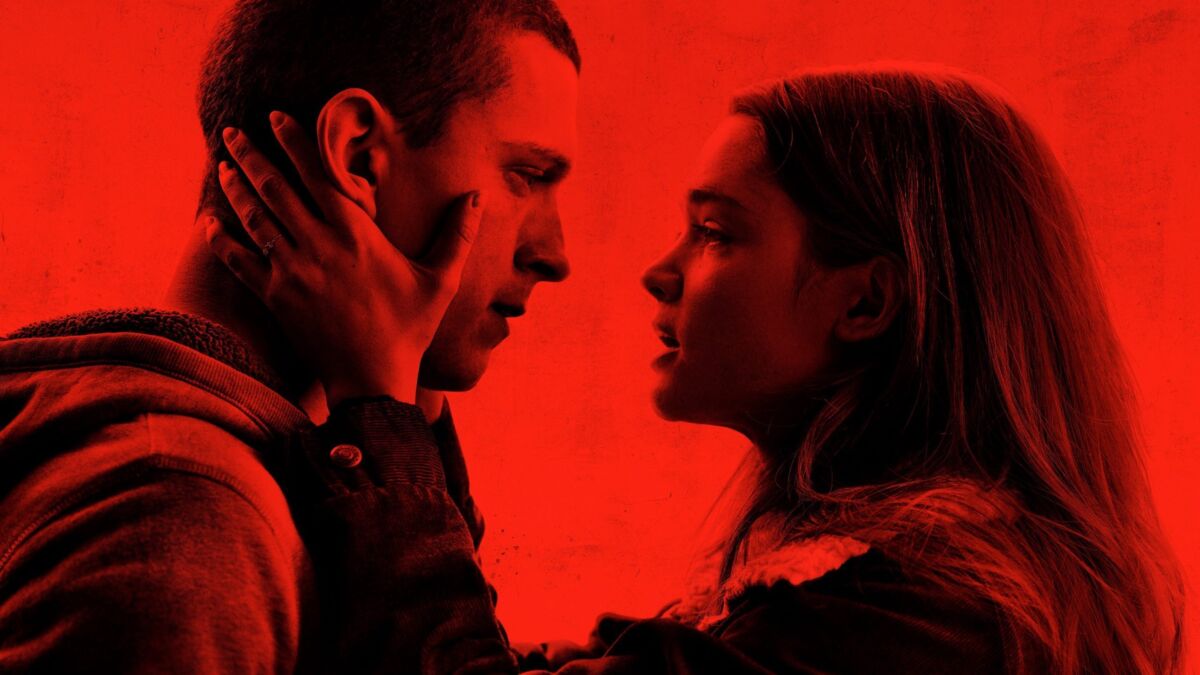Cherry isn’t a bad film. In fact, it’s highly watchable, and while the pacing could use some work (parts of the film just felt too indulgent and way overextended), the main issue here is that the subject matter lends itself to the creation of a smaller, more intimate film, and so the Russo brothers’ first misstep was stylizing it on a blockbuster level.
Thus, the poignant themes and storyline are overshadowed by loud visuals and framing choices that didn’t make much sense to the film itself. I mean, did we really need a visual moment with a doctor looking into the inside of Tom Holland’s butt? However, I do appreciate the ambition and experimentation that went into crafting each segment of the story, even if it didn’t wholly succeed.
Cherry is adapted from the book by Nico Walker, which follows Holland’s Cherry (who remains unnamed throughout) through three periods in his life: his college years, his time in the army, and the aftermath of his experience in the army, when he turns to opioids to keep the mental demons at bay. Holland is the narrator of the events that play out, and sometimes he breaks the fourth wall by directly addressing us on screen. This technique allowed us to remain connected to him throughout the film, even when the stylistic choices were so over the top. Holland’s performance is perhaps one of the reasons why I cannot fully condemn Cherry (the film), because he is so compelling to watch.
His despair and pain are so palpably conveyed, and despite his youthful appearance, he is able to portray the full weight of the mental baggage he has to carry with him at all times. Seeing him weep is so goddamn heart-wrenching, and it is in his performance that the viewer can feel a measure of the pain and suffering that plague these young men we send to war, only to discard them when it becomes too difficult to care for them. In his lowest moment, a doctor enables his opioid habit instead of getting him the help he needs, which leads to his full-blown spiral into drug addiction. There are some visual sequences that do his performance justice, like the mirror scene in the bathroom. We could see Cherry losing a sense of agency over his own life, where normal, everyday life just feels so unbearable.
Ciara Bravo as Emily, Cherry’s girlfriend turned wife, is equally brilliant. The film paints Emily in glowing visuals, since Cherry idealises her, but Bravo’s performance allows her to attain a living, breathing quality. The casting of both Holland and Bravo in these roles is a deliberate, calculated one, because their youthful babyface appearances makes what is happening with their characters all the more difficult to bear.
Cherry’s narrative isn’t particularly new, and is a story we have been privy to many times before, but that isn’t really the issue. God knows I have watched thousands of romance movies that rehash similar plot points. Cherry’s detriment is that our engagement with it is on a superficial level, where we are drawn in by the explosive visuals that shout for our attention every single minute, but then fails in delivering a single moment that feels so utterly real and poignant that it stays with us forever.
Consider Jim Sheridan’s film Brothers, which isn’t the most revered film critically, but has a moment I will never forget, with Tobey Macguire’s Sam breaking down completely in the kitchen. Sam risked everything to return home, only to find his life waiting for him in shambles, with nothing to hold on to. Despite the strength of Holland and Bravo’s performances, there is no such moment here in Cherry, where even the most poignant moments are glossed over in order to reach the next plot point.
Review screener provided.
READ NEXT: Ranking The MCU Movies From Best To Worst
Some of the coverage you find on Cultured Vultures contains affiliate links, which provide us with small commissions based on purchases made from visiting our site. We cover gaming news, movie reviews, wrestling and much more.




